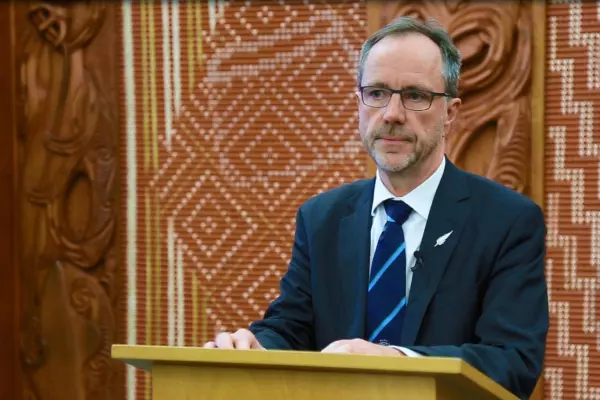Expanded performance measures show the public service is performing well under its Official Information Act (OIA) obligations, says a top official.
Public service commissioner Peter Hughes said the latest OIA data showed 121 central agencies completed 96.9% of nearly 27,000 requests “on time”, with new measures showing the use of extensions, transfers and refusals was not a factor influencing the performance statistics.
OIA request timeliness was down slightly by 0.4% from the previous period, and down 0.9% from the previous high in June 2021.
Chief ombudsman Peter Boshier said he was reassured by the new performance measures which showed the commission’s commitment to open and transparent government
The average time to respond to requests was 12.5 working days.
The figures do not include the NZ Police, who took 7.2 working days to respond to the 34,000 requests they completed.
The act requires agencies to make decisions on requests “as soon as reasonably practicable, and in any case not later than 20 working days”, however, agencies can also transfer requests to another agency or grant themselves extensions.
Hughes said 8.5 % of requests were extended and 2.8% transferred.
However, only 69 of the agencies published their responses for other members of the public to see, and together they only published about 2,700 responses or 10% of the total.
Hughes said he was going to shift his focus to getting more agencies to publish OIA responses and support the proactive release of Cabinet papers.
Complaints
The ombudsman also released the latest data on OIA complaints, with 1,309 received in the six months. This was up from 892 in the previous six months, but he noted nearly 550 of recent complaints came from one individual asking for responses from school boards of trustees.
Boshier said the total number of complaints put a huge amount of pressure on his office, but he applauded staff for managing to complete 1,141 in the past six months.
Of the complaints, 110 were received from the media, and 108 of those were completed.
Hughes said agencies were found to be deficient in 21 complaints, down from 44.
“The number of findings against agencies represents less than 0.1 percent of the 26,613 requests completed.”
BusinessDesk understands that two ombudsman practices, and requesters' reactions to them, may contribute to this small figure.
It's common practice for the ombudsman not to formally initiate investigations but “resolve” them informally.
When a formal investigation does take place, once the ombudsman has notified agencies he has made a draft decision against them, the information is then released, and the investigation ended.
The commission’s statistics will, therefore, not record a final decision by the ombudsman.
There are also anecdotal accounts of people giving up on complaining to the ombudsman because of the long delays in complaints being investigated.
Last week, a BusinessDesk journalist was notified that a complaint lodged in May 2021 had only just been assigned an investigator.
Self-reported
The editor of BusinessDesk’s recent investigation of the public sector, Nikitin Sallee, noted that the commission is relying on self-reported and unaudited data.
BusinessDesk has had a recent experience of inaccurate information being reported by an agency to the commission.
The Department of Internal Affairs had recorded one of our requests as being answered within the 20-day legal deadline, even though most of the information requested was not given in its response.
A full answer was supplied only several weeks later, after more correspondence.
Following a discussion with BusinessDesk, the department said the request was now recorded as “late” in its tracking system, adding, “We will update this change to the Public Service Commission”.
‘The most open, most transparent’
National party spokesperson Simeon Brown accused Labour of saying it would be “the most open and transparent government”, but that it had failed to live up to this promise.
The fact complaints are increasing shows that people are not finding it open and transparent.
The government has also failed to keep to its promise to proactively release Cabinet papers within 30 days of making decisions, despite its promises of open government.
“The Official Information Act must be reviewed to ensure it is fit for purpose and the government needs to put action to its words if it wants to be known as the ‘most open and transparent government ever’.”
This is a reference often made by the opposition to former minister of open government Clare Curran saying: “My priority is that this will be the most open, most transparent government that New Zealand has ever had.”
In its Speech from the Throne following the 2017 election, the government said it would foster a more open and democratic society.
“It will strengthen transparency around official information. It will undertake an independent review to enhance the integrity of the electoral process and enrolments, ensure Parliament's processes reflect MMP, and that the make-up of parliament continues to reflect the expressed preference of voters.”
No minister has been appointed to the open government portfolio since Curran was dismissed from Cabinet in 2018 over the Hirschfeld affair.














